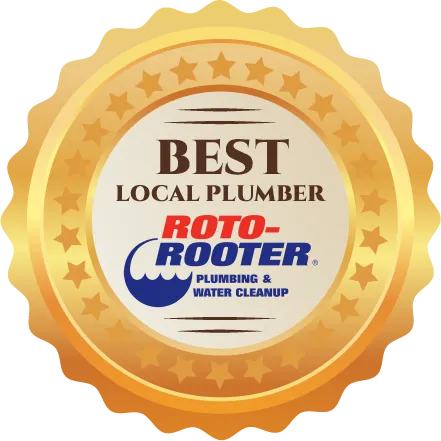Low-Cost Drain Clog Prevention in Southern Utah
In Southern Utah, managing drain clogs can be particularly tricky due to the region’s hard water, which often leads to mineral buildup in pipes. However, it’s possible to maintain clear drains without incurring high costs. By implementing a few simple practices, such as utilizing natural cleaners that counteract mineral deposits and installing homemade strainers to catch debris, you can effectively prevent clogs. Interested in how these cost-effective solutions can benefit your home in Southern Utah? There’s much more to explore, offering potential savings of both time and money.
Understanding the Impact of Hard Water on Drains
In Southern Utah, managing hard water is crucial to maintaining functional plumbing systems. The region’s water supply is notably high in minerals, particularly calcium and magnesium, which leads to limescale buildup in pipes.
This accumulation can significantly narrow pipes, diminishing water flow and heightening the risk of clogs. Residents may observe white residue around faucets or dull spots on dishes, clear indicators of hard water issues.
The mineral deposits cling to pipe walls, and over time, this reduces the water flow, resulting in slow drains and potential blockages. Addressing these hard water challenges is essential for keeping drains clear and avoiding unexpected plumbing troubles.
Regular Maintenance Routines for Preventing Clogs
To effectively prevent clogs in your plumbing system, establishing a regular maintenance routine is key. In regions where hard water is common, such as the Midwest, mineral deposits can build up in pipes, exacerbating clogging issues. Therefore, consider installing a water softener to minimize these deposits.
Make it a habit to inspect your drains monthly for any signs of buildup. This way, you can catch potential issues before they become major problems.
In coastal areas, where sand can easily find its way into drains, be extra diligent about cleaning your drains and installing drain strainers. Use these strainers to catch hair, food particles, sand, and other debris from slipping down the drain. Clean these strainers weekly to maintain their effectiveness.
Next, run hot water through your drains for a few minutes after each use. This simple action helps loosen any grease or soap residue before it solidifies.
Residents in colder climates, such as the Northeast, should be particularly cautious with oils or fats, as they can congeal quickly in low temperatures and cause blockages.
Using Baking Soda and Vinegar for Natural Drain Cleaning
In regions with hard water, like the southwestern United States, mineral deposits can accumulate in pipes, leading to stubborn clogs.
Additionally, areas with older plumbing systems, such as historic neighborhoods in the northeastern United States, may face more frequent drainage issues due to aged infrastructure.
For these location-specific challenges, regular maintenance routines are crucial, yet sometimes drains require an extra boost to remain clear.
A highly effective and natural solution is utilizing baking soda and vinegar.
Start by pouring a pot of boiling water down your drain to loosen any buildup. Then, add half a cup of baking soda and let it sit for a few minutes.
Follow this with a mixture of one cup vinegar and one cup hot water. The fizzing action you observe is a sign that the solution is actively breaking down clogs.
Allow this to sit for at least 15 minutes. Finally, flush the drain with another pot of boiling water.
This method isn’t only cost-effective but also environmentally friendly, helping you maintain clear drains without resorting to harsh chemicals.
DIY Drain Strainers: An Affordable Barrier to Debris
Living in areas with older infrastructure, such as the historical neighborhoods of New York City or the charming vintage homes of San Francisco, often comes with the challenge of dealing with outdated plumbing systems.
A simple DIY project like creating your own drain strainers can help prevent clogged drains without straining your budget. These handy tools act as affordable barriers, keeping debris like hair, food particles, and soap scum out of your pipes.
For those in places prone to frequent rainfall, such as Seattle, drain strainers are especially beneficial in preventing excess debris carried by rainwater from clogging the drains. You can craft your own strainer using items such as mesh fabric or plastic lids with small holes, cut to fit your drain size, and you’re all set.
Installing a DIY drain strainer is straightforward. Simply place it over the drain, ensuring it catches debris while allowing water to flow freely.
Make sure to regularly clean the strainer by emptying the trapped debris into the trash. This method not only saves money on expensive plumbers but also extends the life of your home’s plumbing, a crucial consideration in cities where maintenance can be costly.
The Benefits of Routine Hot Water Flushing
In the arid climate of Southern Utah, maintaining clear plumbing can be particularly challenging due to the high mineral content in the water, which can lead to mineral deposits in pipes.
Beyond the practicality of using DIY drain strainers to trap larger debris, one effective strategy to combat these issues is routine hot water flushing. Regularly pouring hot water down your drains can help dissolve minor buildups of grease, soap, and mineral deposits, preventing them from accumulating into larger, stubborn clogs.
This simple practice can keep your pipes free-flowing and reduce the risk of costly plumbing issues, which can be exacerbated by the region’s hard water.
Consider making it a habit to flush your drains with hot water once a week. It’s a quick, easy task that only takes a few minutes.
Plus, using hot water is safe for your pipes and environmentally friendly since it doesn’t involve chemicals. This proactive step will extend the life of your plumbing system and ensure efficient drainage, a crucial consideration in an area where water conservation and infrastructure maintenance are paramount.
Proper Disposal Practices to Avoid Clogs
To effectively prevent clogs in your plumbing, it’s crucial to understand proper disposal practices while considering location-specific challenges.
In coastal areas, for instance, the accumulation of sand and small pebbles from beach trips can contribute to clogs. Be sure to rinse off thoroughly before entering your home to avoid this issue.
In regions with hard water, mineral deposits can build up in pipes, making it even more important to avoid pouring grease or oil down the drain, as they can exacerbate these blockages. Collect grease in a container and dispose of it in the trash instead.
In rural areas with septic systems, flushing non-biodegradable items like wipes, cotton balls, or dental floss can cause significant problems. Even those labeled “flushable” can lead to issues, so use a trash bin for these items.
In the kitchen, a drain strainer is useful for catching food scraps, which can gather and block your pipes over time. Be especially cautious with coffee grounds and eggshells; while they may seem harmless, they can accumulate and cause costly repairs.
Utilizing Enzyme-Based Drain Cleaners
Dealing with plumbing issues in Southern Utah can be particularly challenging due to the region’s hard water. This mineral-rich water can lead to frequent buildups in your pipes.
Enzyme-based drain cleaners provide an effective and eco-friendly solution to this problem. Unlike harsh chemical alternatives, these cleaners utilize natural enzymes to break down organic material and mineral deposits in your pipes. They’re safe for both your plumbing system and the local desert environment, making them a perfect choice for homes in this area.
To use enzyme-based cleaners effectively, pour the recommended amount down the drain and allow the enzymes to work overnight. They’ll digest the gunk and mineral build-up causing blockages without damaging your pipes.
Regular use is particularly beneficial in Southern Utah, as it helps maintain clear drains and prevent clogs exacerbated by hard water deposits.
Installing Water Softeners to Minimize Mineral Build-Up
In regions like Southern Utah, the presence of hard water is a prevalent concern, leading to persistent mineral deposits in plumbing systems. While enzyme-based cleaners can be effective, installing a water softener provides a more comprehensive solution to this issue. By preventing mineral build-up at its source, a water softener can alleviate the challenges faced by homeowners in these areas.
The hard water in Southern Utah is rich in calcium and magnesium, which contribute to stubborn deposits in pipes and appliances. A water softener works by exchanging these minerals with sodium or potassium ions, effectively preventing build-up before it starts.
The benefits of installing a water softener extend beyond merely preventing clogs. Homeowners will notice that their appliances have a longer lifespan, dishes come out cleaner, and laundry appears brighter.
Additionally, plumbing maintenance becomes less frequent and easier to manage. Investing in a water softener isn’t only a wise choice for protecting your home but also ensures that your drains remain clear and efficient.
Seeking Professional Help When DIY Methods Fail
Even with the best preventive measures, stubborn clogs can sometimes persist, leaving you frustrated and in need of expert assistance. When DIY methods fail, it’s time to call a professional plumber. They’ve the tools and expertise to tackle persistent blockages without causing damage to your pipes.
By seeking professional help, you guarantee that the problem’s addressed thoroughly, preventing future issues.
In Southern Utah, there are many experienced plumbers who understand the unique challenges of the local water system, including mineral build-up and hard water issues.
Additionally, the region’s desert climate can lead to sediment accumulation in pipes, exacerbating clogging problems. Local plumbers are well-versed in addressing these specific conditions and can offer effective, tailored solutions.
Don’t wait until a minor clog turns into a major plumbing emergency. Trust the professionals to restore your drains to peak condition, saving you time and stress.
Conclusion
To keep your drains clog-free and your plumbing in excellent condition in Southern Utah, consider these cost-effective strategies tailored to local challenges. The hard water prevalent in this region can lead to mineral buildup in pipes, so regular maintenance is crucial. Utilizing baking soda and vinegar, DIY strainers, and hot water flushing can effectively prevent clogs. Proper disposal of waste is essential, as the dry climate can exacerbate issues with waste breakdown. Additionally, enzyme-based cleaners and water softeners can help address hard water problems specific to Southern Utah. If DIY methods prove insufficient, don’t hesitate to seek professional assistance. By adopting these proactive habits, you can maintain a healthy plumbing system without incurring high costs.
Tags





